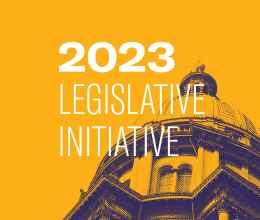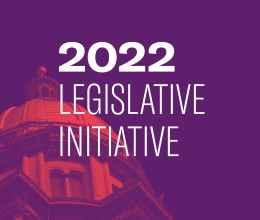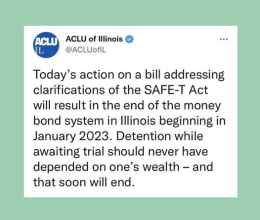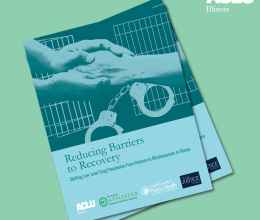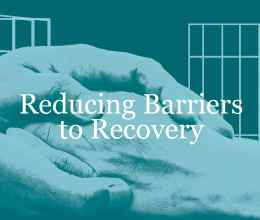
As of September 2023, Illinois officially became the first state to abolish the unfair practice of jailing people accused of crimes simply because they cannot afford to pay a money bond.
Money bond is the system in which a judge sets a dollar amount for people charged with a crime to buy their freedom while waiting for their trial. Courts routinely set bond amounts that far exceed the ability of an individual or their family to pay. In Cook County (the state’s largest county), two thirds of those jailed before conviction were there only because they could not afford the price of their bond. This leads to a two-tiered system where those with access to money can buy their freedom, while those without access to wealth must wait in jail – preventing them from working or caring for their children. Spending even a few days in jail can completely destabilize a person’s life, and when someone is held in custody before their case is heard, they are more likely to be convicted and to receive a longer sentence.
Ending the money bond system in Illinois also addresses mass incarceration and racial disparities in Illinois’ criminal legal system. Evidence shows that the use of money bonds exacerbates racial disparities, more often leading to the detention of people of color.
The Pretrial Fairness Act ends the use of money bond and transforms the state’s pretrial legal system by restoring the presumption of innocence. Instead of using a money bond, judges will make individualized determinations if someone should be detained pretrial because there is evidence that they pose a safety risk to others or are likely to flee.
The Pretrial Fairness Act was signed into law in early 2021 as part of the SAFE-T Act, a broader package of policing and criminal legal system reforms championed by the Illinois Legislative Black Caucus and the Coalition to End Money Bond and Illinois Network for Pretrial Justice. This achievement was made possible by the national Black Lives Matter movement in response to police murders of Black people across the country.
The Act was set to go into effect on January 1, 2023, but at the eleventh hour, several groups of prosecutors and sheriffs filed lawsuits challenging its constitutionality on numerous grounds. The Circuit Court in Kankakee (where the lawsuits were consolidated) granted summary judgment to the plaintiffs in December 2022. The Illinois Supreme Court granted a direct, expedited appeal by the Illinois Attorney General’s Office. The ACLU, joined by 389 other amici – including community organizations, supporters of victims of domestic/gender-based violence, faith leaders, violence prevention organizations, and elected officials – filed a brief urging the Illinois Supreme Court to allow the Pretrial Fairness Act to take effect.
In July 2023, the Illinois Supreme Court rejected the arguments raised by the prosecutors and sheriffs, upholding the constitutionality of the Pretrial Fairness Act’s elimination of money bond and setting its implementation for September 2023.
Read a blog on the end of money bond
The ACLU of Illinois is a member of the Coalition to End Money Bond, a group of organizations with the shared goal of stopping the large-scale jailing of people simply because they were unable to pay a monetary bond. Together with our partners in the Illinois Network for Pretrial Justice, the Coalition is working to implement the Pretrial Fairness Act all across the State of Illinois. Find more about the Coalition and Network here.
Learn more at pretrialfairness.org
LAVETTE MAYES
To explore how the money bond system can impact someone’s life, Lavette Mayes shared her experience of being incarcerated on an unaffordable bond in Chicago. Watch her story here.
Lavette Mayes was also featured on an episode of our podcast TALKING LIBERTIES. In the episode she was joined by Sharlyn Grace, an attorney and expert on this topic. You can listen to TALKING LIBERTIES: The Price of Cash Bail here.
Below are some talking points on Ending Money Bond:
- Ending money bond assures that the criminal legal system treats people accused of a crime as innocent until proven guilty.
- Ending money bond means that a person’s access to wealth will no longer determine whether they are free or locked up before trial.
- A judge still will consider whether an accused person should be denied release because they would pose a threat to other people, or because they would be likely to flee.
- Spending even a few days in jail can completely destabilize a person’s life - causing them to lose their job, home, or custody of their children.
- There is no evidence that forcing someone to pay a money bond increases the likelihood that someone appears for their court proceedings.
- Money bond exacerbates racial disparities, more often leading to the detention of people of color.
- Jail increases recidivism and decreases public safety over time. Ending money bond will ensure that pretrial incarceration is used only as a last resort to ensure community safety and the person’s appearance in court.
